War and humanitarianism, medicine and public health, rights and justice... Discover CRASH publications sorted by themes.
The fact that CRASH publications are written from an aid practitioner's, rather than researcher's, perspective, does not exempt them from the demands of rigorous research methods. We try hard at this, with the help of (volunteer) research professionals. The publications are not the MSF party line, but rather tools for reflexion based on MSF's framework and experience. They have only one purpose: to help us better understand what we are doing. Criticisms, comments and suggestions are more than welcome - they are expected.
The Calais “jungle” today: France’s shame
12/05/2015This article was originally published in French in Slate Magazine on 4 December 2015, accessible here. The article was translated into English by Teresa Piacentini for the University of Glasgow GramNet blog.
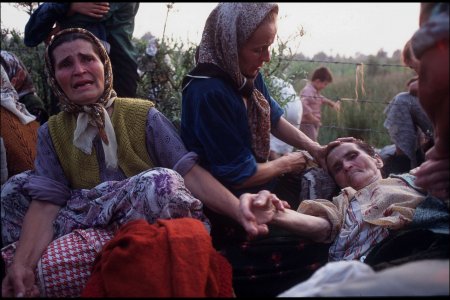 Olivier Jobard/MYOP
Speaking Out Case Studies
Olivier Jobard/MYOP
Speaking Out Case Studies
MSF and Srebrenica, 1993-2003
07/17/2015The case study ‘MSF and Srebrenica 1993-2003' explores the constraints and dilemmas raised when MSF spoke out about the events that occurred in Srebrenica's Muslim enclave.
 Analysis
Analysis
How humanitarians work when faced with Al Qaeda and the Islamic state
02/20/2015How to intervene with the civilian populations in the middle of the war in Syria? Jean-Hervé Bradol, director of studies at Crash and former project coordinator for the northern part of Syria in 2013, testifies about the negotiations carried out in Syria in cities taken by groups affiliated to Al Qaeda or the Islamic State. This article was published on the Mediapart website on February 1, 2015.
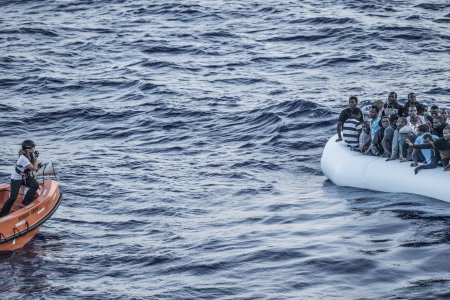 Francesco Zizola
Analysis
Francesco Zizola
Analysis
The State of the Humanitarian Sector
01/30/2015This article is an English translation of an interview of Fabrice Weissman about the State of the Humanitarian Sector, in Revue Internationale et Stratégique (n°98, 2015/2) published by the Institut de Relations Internationales et Stratégiques
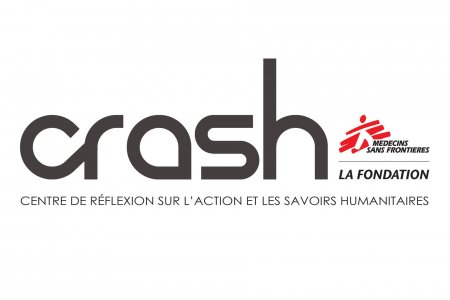 News in brief
News in brief
The Crash – MSF
10/07/2014This article was originally published in French on Grotius, as part of a dossier on the contribution of research to humanitarian action. Unlike most think tanks and research institutes devoted to the study of humanitarian aid, the CRASH - born of Médecins Sans Frontières leaders' desire for a structure to support critical reflection on their own operations - is an integral part of a relief organization.
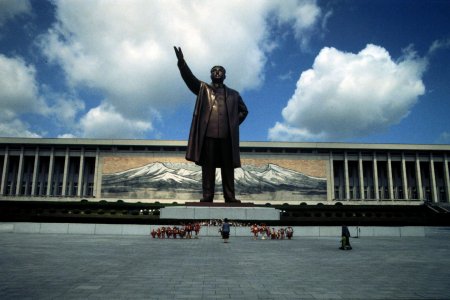 PETER VAN QUAILLE
Speaking Out Case Studies
PETER VAN QUAILLE
Speaking Out Case Studies
MSF and North Korea 1995-1998
10/01/2014The 'MSF in North Korea 1995-1998’ case study is describing the constraints and dilemmas that led Médecins Sans Frontières to speak out publicly while its teams were trying to bring assistance to the North Korean population on its territory between 1995 and 1998 and to the North Korean refugees in Asia in the following years.
 Analysis
Analysis
MSF and the aid system: choosing not to choose
07/03/2014We often hear it said within MSF that the aid system is unable to provide effective relief, or that the aid system’s ability to provide aid is in decline. These statements, which suggest that MSF is itself outside the "system", are based on the very real number of people in relief operations who need help but do not receive it, or do not receive enough of it.
 R. Chalasani
Speaking Out Case Studies
R. Chalasani
Speaking Out Case Studies
Violence against Kosovar Albanians NATO’s intervention 1998-1999
06/23/2014This case study describes the constraints and dilemmas facing Médecins Sans Frontières teams that witnessed a process of terror and expulsion which they described as the ‘deportation' of Kosovar Albanians by Serb forces.
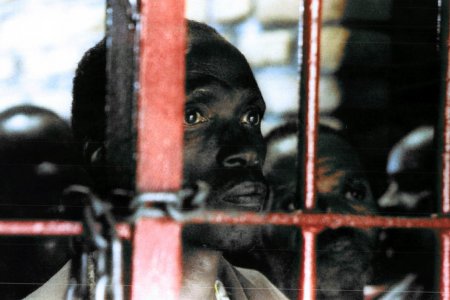 Corinne Dufka
Speaking Out Case Studies
Corinne Dufka
Speaking Out Case Studies
The violence of the new Rwandan regime 1994-1995
04/03/2014This case study is describing the difficulties and dilemmas that Médecins Sans Frontières faced in 1994 and 1995 when confronted with the abuses and crimes of the new regime that had taken over in Rwanda in July 1994.
